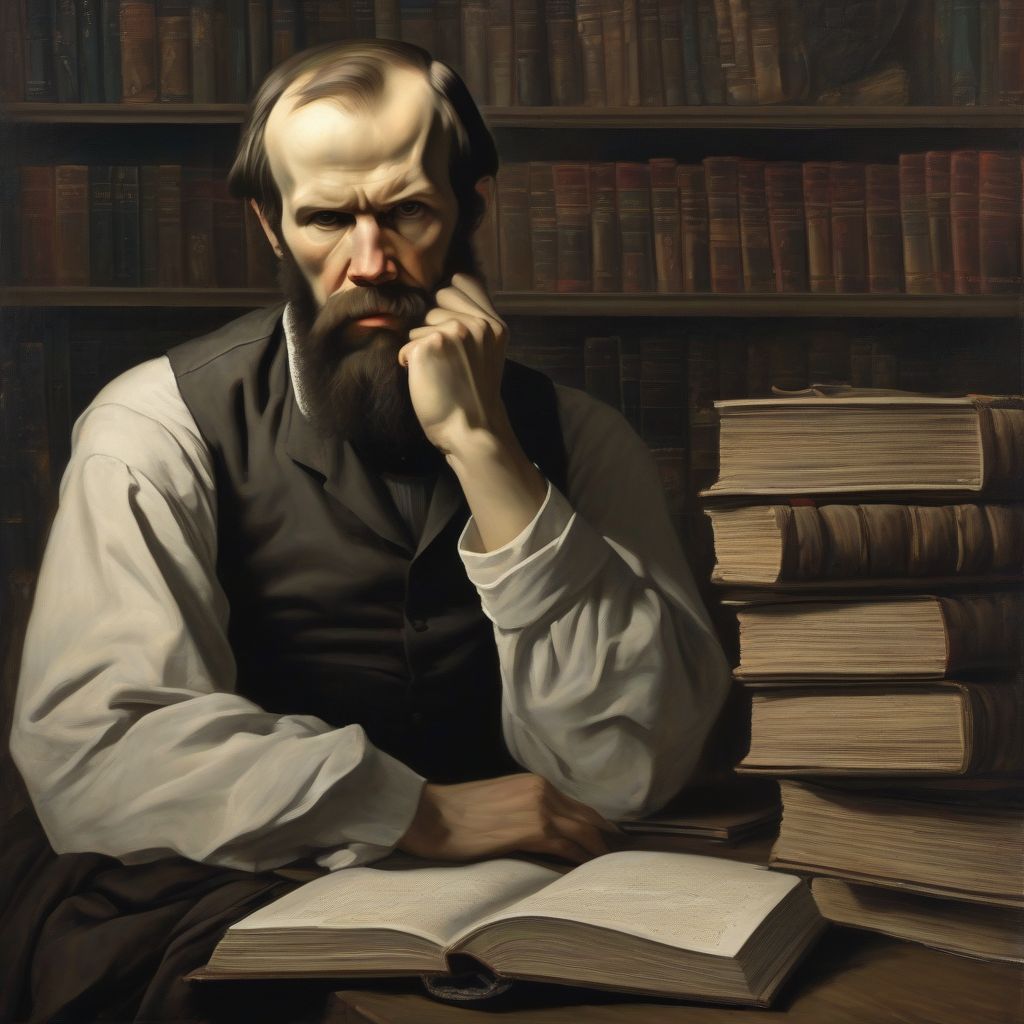Have you ever felt the chilling weight of moral dilemmas, the internal struggle between good and evil, or the profound search for meaning in a world seemingly devoid of it? If so, you’ve likely brushed against the very themes that dominate the works of Fyodor Dostoevsky, a literary giant whose psychological and philosophical insights continue to resonate with readers today. This exploration delves into the complex and intertwined philosophical themes that permeate Dostoevsky’s writings, offering a glimpse into the mind of a writer who wrestled with the deepest questions of human existence.
The Burden of Free Will and Moral Responsibility
Dostoevsky grappled intensely with the concept of free will and its implications for human morality. His characters often find themselves at a crossroads, forced to confront the consequences of their choices. In Crime and Punishment, Raskolnikov’s intellectualized justification for murder crumbles under the weight of his guilt, revealing the inherent human need for moral grounding. This theme echoes throughout his works, suggesting that true freedom comes not from rejecting morality, but from embracing it.
The Paradox of Suffering
Dostoevsky believed that suffering was not merely a negative experience, but a crucial catalyst for spiritual growth and moral transformation. His characters often endure immense hardship, leading them to question the nature of God, justice, and the meaning of life. In The Brothers Karamazov, Ivan’s rebellion against a God who allows innocent suffering encapsulates this profound philosophical struggle. Dostoevsky suggests that through suffering, we can achieve a deeper understanding of ourselves and our connection to humanity.
The Search for Faith and the Existence of God
Dostoevsky’s own spiritual journey significantly influenced his writing. His novels are filled with characters who grapple with questions of faith, doubt, and the existence of God. While some, like Alyosha Karamazov, find solace in religious belief, others, like Ivan, wrestle with the apparent contradictions and injustices of the world. This exploration of faith is not presented as a simple dichotomy, but rather as a complex and ongoing struggle within the human heart.
The Nature of Good and Evil
The battle between good and evil is a recurring motif in Dostoevsky’s works. He delves into the complexities of human nature, showing how these opposing forces coexist within individuals. Characters like Raskolnikov and Svidrigailov in Crime and Punishment represent the different facets of this struggle, highlighting the potential for both immense cruelty and profound redemption within the human soul.
The Psychology of Crime and Punishment
Dostoevsky’s experience with imprisonment profoundly impacted his writing, leading him to explore the psychological implications of crime and punishment. He delves beyond the external consequences of criminal acts, focusing on the internal turmoil and moral reckoning that follows. Notes from Underground offers a glimpse into the mind of a marginalized individual, revealing the psychological complexities that can lead to transgression.
The Alienation of the Individual in Modern Society
Dostoevsky was acutely aware of the growing alienation of individuals in modern society. His characters often feel isolated and disconnected, struggling to find meaning and purpose in a world increasingly driven by rationalism and materialism. This sense of alienation contributes to their existential crises and fuels their search for connection and belonging.
The Power of Love and Redemption
Despite the darkness and suffering prevalent in his works, Dostoevsky ultimately offers a message of hope and redemption through love. He portrays love as a transformative force, capable of healing even the most broken individuals. In The Idiot, Prince Myshkin’s unwavering compassion and empathy illuminate the power of love to transcend human flaws and offer a path towards salvation.
 Dostoevsky's Philosophical Themes
Dostoevsky's Philosophical Themes
The Influence of Nihilism and Existentialism
Dostoevsky engaged with the burgeoning philosophies of nihilism and existentialism, exploring the implications of a world without inherent meaning. His characters often confront the absurdity of existence, leading them to question the foundations of morality and the purpose of life. This exploration of existential themes adds another layer of complexity to his work, prompting readers to contemplate their own place in the universe.
Conclusion
Fyodor Dostoevsky’s works offer a profound exploration of the human condition, delving into the complex interplay of free will, morality, faith, and suffering. His characters grapple with timeless questions about the nature of good and evil, the search for meaning in a seemingly meaningless world, and the potential for redemption through love. By confronting these universal themes, Dostoevsky’s novels continue to resonate with readers today, prompting us to examine our own beliefs and values and to seek a deeper understanding of ourselves and the world around us. What are your thoughts on the enduring power of Dostoevsky’s philosophical themes? Share your perspectives and insights in the comments below, and explore further into the rich world of classic literature and its reflection of social and cultural values through this link: How Classic Literature Reflects Social and Cultural Values. Let’s continue the conversation and delve deeper into the literary legacy of this remarkable writer.



